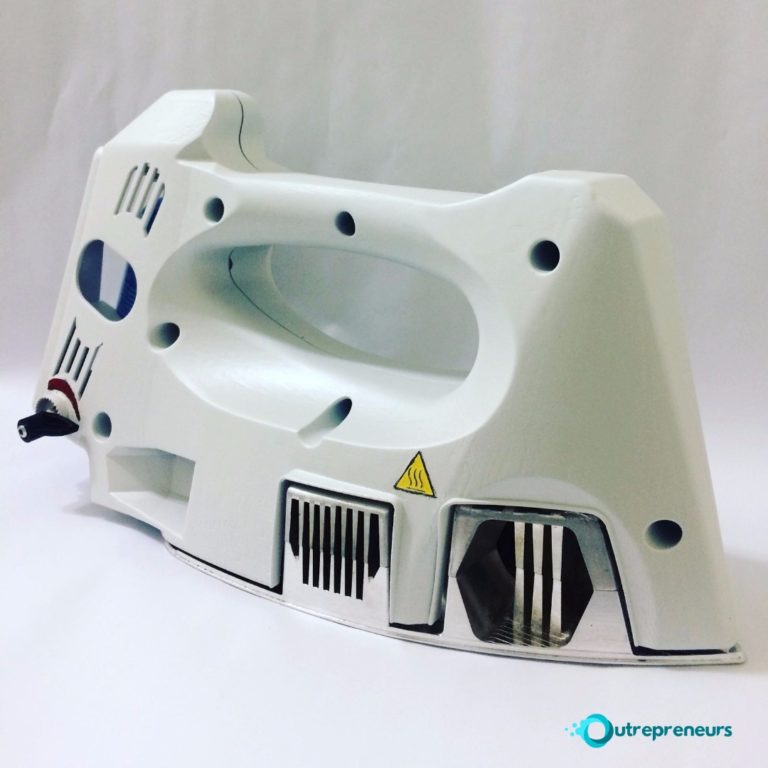Inventor of the ‘Nepaless’ iron, Ayokunle Adeniran has revealed that he almost gave up on the venture out of frustration but eventually pushed himself through to complete the breakthrough.
In a recent interview with Outrepreneurs, Ayokunle discussed how he came about the idea for the pressing iron.
He reiterated that his need to iron his rumpled clothes in the absence of light prompted him to start the innovation.
Continuing with the story of meeting his dad at the airport, he said, “The clothes I had planned to wear on that day had to be changed, because there was no way I could press them and that got me really upset. I thought, ‘in which other way could I make an impact in this field [Engineering]?’ That led to the idea of finding an alternative to the electric pressing iron.”
This highlights the challenge of electricity supply in many parts of Africa and his consequent attempt to overcome it through the innovation. A gas canister provides the energy needed to power the pressing iron.

The name presently given to the invention came from ‘NEPA’, the abbreviation of a corporation in charge of electricity in Nigeria (the National Electric Power Authority), before it was privatized in 2011 and since the suffix ‘less’ in English Language means ‘without’, Ayokunle’s ‘NEPAless’ iron definitely works without the national grid. According to him, people will easily understand the solution is an alternative to the electric pressing iron.
He also added that most of the schematics and assemblage was done in Nigeria but that innovation through science and technology is something that was poorly supported in the country.
“Most of the work for this product was done in Nigeria. I did most of the work, when I used to live in Lagos. Here in the United States, there is more support for engineering work, design and product development.
“Back in Nigeria, I had to make every single piece of the parts by myself. In the US, there are already companies; all I need to do is to give them the specification of the tools I need and pay them the money needed to do them.”
At a time, he got tired and almost did not continue with the invention. It was only a sense of responsibility that made him not to allow his efforts to go to waste.
“This kind of work is very demanding. I just put everything aside and moved on with my life. I later went back to it, though.”
Summing his experience as an innovator, he adds that interest is critical to success at any venture.
“Since when I was a child, I have always been interested in things like gadgets. Everything starts with an interest. When you know you are interested in solving problems, that interest makes you to go do research on how to solve the problems,” he said.
He also added that failing at experimental prototypes is part of being an innovator and that he gained a wealth of experience from it, but that the negative reception from his fellow Nigerians was shocking.
“Sometimes, being an inventor means you will fail many times, but you should be able to keep your work and track what you do. It is like you are doing a research document, anything you discover is something you can always build on to climb up the ladder.”
An incident left him with a sad memory, while he was seeking support for his invention in 2015. He had put up an online crowdfunding campaign to raise 20 million naira from Nigerians, but he was only able to raise 30 thousand naira. The same campaign was done in the US and he was able to raise 1,500 dollars. However, what really made him feel bad was the negative comments some Nigerians made, that he wanted to rip them off.
He added that the gas-powered pressing iron is what he uses in his home in the United States. According to him, some modifications have been made to the earlier prototype, which make the gas canister to last fifteen times longer than when the first prototype was made.



Leave a Reply